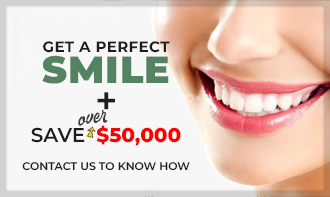Jun 07, 2025
In recent years, charcoal toothpaste has exploded in popularity. Marketed as a natural and effective solution for whitening teeth and detoxifying the mouth, it’s become a staple on the shelves of health-conscious consumers. Influencers and social media trends have fueled its rise, but beneath the hype lies a critical question: is charcoal toothpaste actually safe for your teeth? As an expert dentist, it’s essential to separate facts from fads and examine what charcoal toothpaste truly does to your oral health.
What’s Inside Charcoal Toothpaste?
Charcoal toothpaste is made using activated charcoal, a form of carbon that’s been processed to have a fine, porous texture. The theory is that these pores help trap toxins and stains, leading to a brighter, cleaner smile. While this concept sounds promising, especially when compared to chemical-based whiteners, the reality is more complex. Activated charcoal is indeed highly absorbent, but that doesn’t mean it’s a safe or effective ingredient for daily dental care.
Unlike traditional fluoride toothpastes that are backed by decades of research, charcoal pastes are often marketed without comprehensive clinical validation. Most charcoal toothpastes lack fluoride altogether, which raises red flags for dental professionals. Fluoride plays a critical role in preventing tooth decay by strengthening enamel. Without it, users of charcoal toothpaste may unknowingly increase their risk for cavities.
The Abrasive Nature of Charcoal
Perhaps the most concerning aspect of charcoal toothpaste is its abrasiveness. The gritty texture that helps scrub away surface stains can also wear down enamel—the protective outer layer of the teeth. Enamel does not regenerate once it’s lost, and its erosion can lead to increased tooth sensitivity, discoloration, and higher susceptibility to decay.
Patients often report short-term whitening after using charcoal toothpaste, but this is typically due to the removal of surface stains rather than any deep or lasting change. In fact, overuse may result in enamel thinning that exposes the underlying dentin, giving teeth a yellowish appearance and undermining the very goal of whitening. Ironically, a product marketed for a whiter smile can ultimately make teeth look darker over time.
Hidden Dangers and Lack of Regulation
Another issue with charcoal toothpaste is the lack of regulation and standardization. Unlike conventional toothpaste brands that adhere to rigorous safety guidelines, many charcoal products are sold as natural alternatives with little scientific backing. They may contain unlisted ingredients or vary widely in their abrasiveness. Some even have particles sharp enough to cause microscopic scratches on the enamel and gums, increasing the risk of irritation and bacterial invasion.
Furthermore, charcoal particles can get lodged in the gums or existing dental restorations, such as fillings or crowns, which can be difficult to clean and may lead to long-term complications. Dentists have also observed staining of restorations like composite fillings or veneers, which do not react to whitening agents in the same way as natural teeth.
A Brighter Smile with Better Choices
While the appeal of charcoal toothpaste is understandable, it’s important to approach dental trends with caution. The health of your teeth should not be compromised for the sake of a fleeting whitening effect. Safer, dentist-approved whitening options exist that are both effective and enamel-friendly. Before adopting any new dental product, especially one as abrasive as charcoal toothpaste, consult with your dentist to determine what’s best for your unique oral health needs. Trends may come and go, but a healthy, lasting smile is always in style.
 |
 |
 |
Time to Get in Touch With Us!!
For more information about the Smile Makeover in India, get in touch with Dr. Motiwala’s Dental Clinic & Implant Center at +91 99596 14584. Simply fill out the form on our CONTACT US page.




